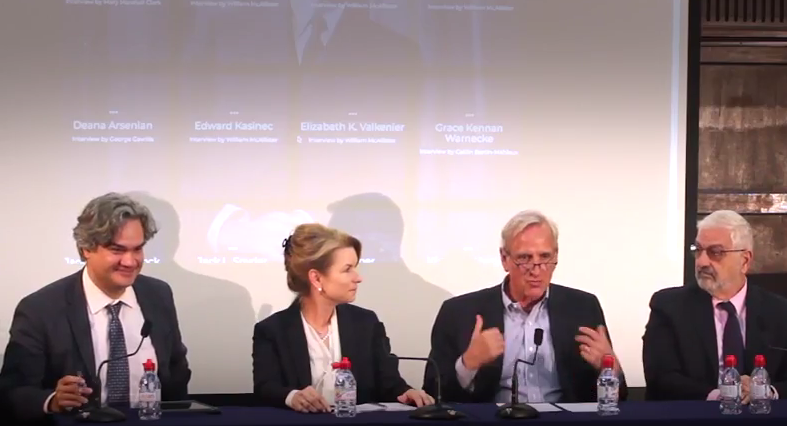He went on to analyze the elements that have led to the divide between the West and Russia, including the deception and betrayal that Russians felt in being relegated from a global power to a regional one. To combat its loss of status, Russia developed “asymmetrical means” to be able to compete with the U.S. – such as influencing foreign elections via social media and other means – that have led us to a crisis of democracy in the West today.
For her part, Newton, who is principal investigator for University Consortium, linked the decline of area studies and regional experts in the 1990s and 2000s to the growth of competing, and often false, narratives of Russia in the U.S. and vice versa. This in turn resulted in a lack of introspection on the part of both nations to their respective roles in the deterioration of relations.
“Context is critical for understanding how countries and peoples think,” said Newton as she argued for the need for a more evidence-based, critical regard by the academy and regional experts toward Russia.
The Harriman Institute, all agreed, still has an important role to play in providing nuanced historical and cultural understanding of Russia, and in building bridges with academic and professional counterparts in Russia and former Soviet states.
